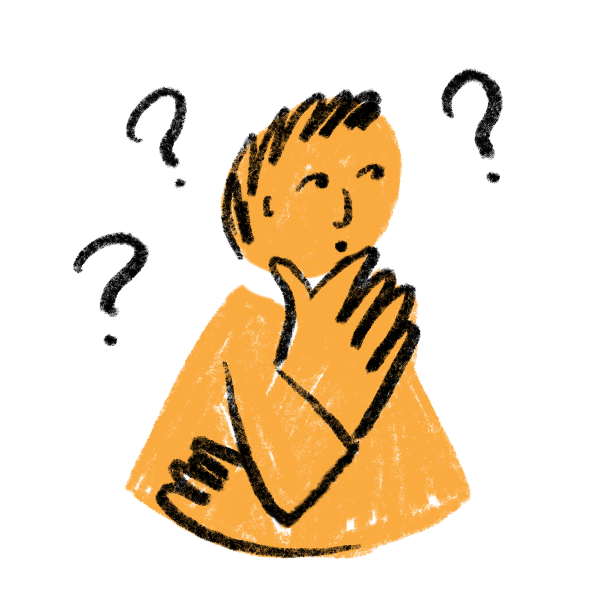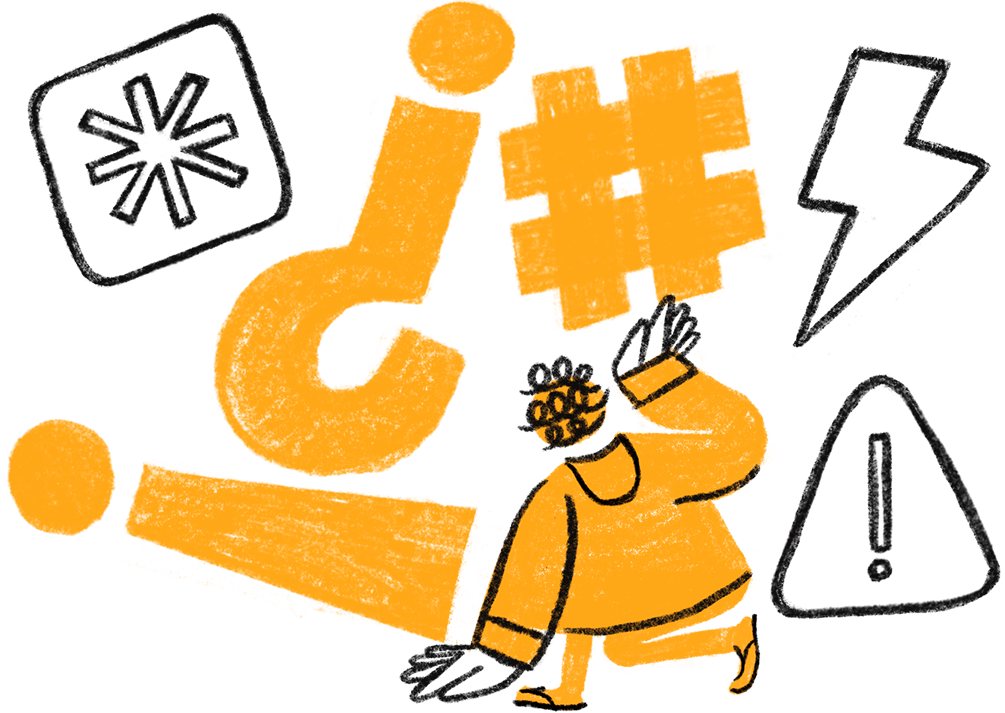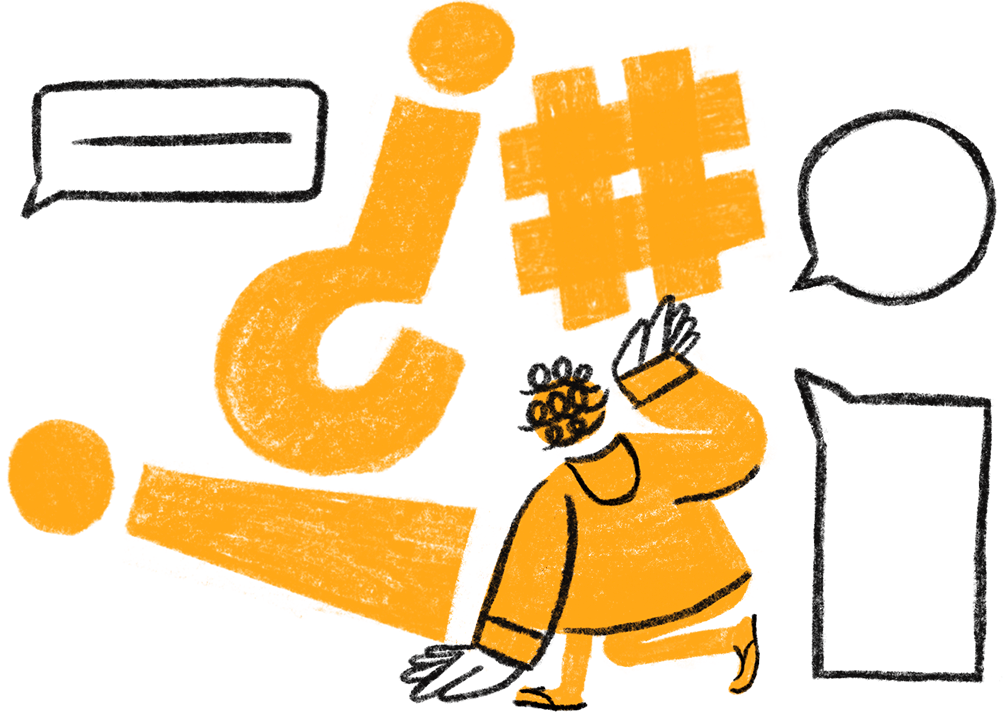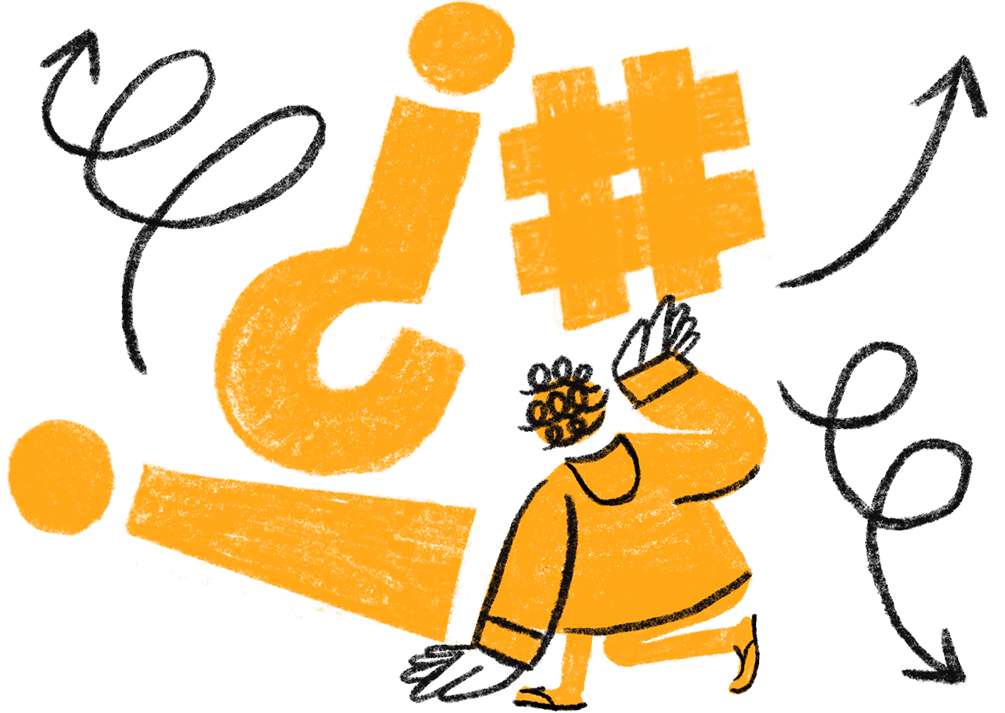The Facts
Sexualised language and harassment is unfortunately a common experience for our rangatahi. Check out the below statistics for an idea of how present sexualised language is in their day-to-day.
Key Statistics
-
87%
of female students have experienced verbal sexual harrassment.
*Pukeko Research 2021: Christchurch Girl's High School Survey of Sexual Harassment
-
55%
of boys report unwanted or inappropriate comments of a sexual nature.
*Ofsted Report: Review of Sexual Abuse in Schools and Colleges
-
92%
of girls say sexist name-calling happens to them or their peers.
*Ofsted Report: Review of Sexual Abuse in Schools and Colleges
-
71%
of 16-18 year old boys and girls say they hear terms such as “slut” or “slag” used towards girls at schools on a regular basis.
*Ofsted Report: Review of Sexual Abuse in Schools and Colleges
Sexualised Language Explained
Discover the risks associated with sexualized language and its impact on rangatahi. Join us as we delve into the topic, exploring strategies to mitigate harm and promote a positive understanding of sexuality.

Objectifying Language
What It Is
Objectifying language refers to the use of words, phrases or expressions that reduce individuals to commodities. Generally, there is a focus on physical appearance, sexual attributes or body parts and a disregard of a person's agency, emotions and individuality.
The Drivers
- Social and cultural norms
- Ingrained stereotypes
- Power imbalances and/or a desire for dominance
- Lack of empathy or social awareness
The Impact
Objectifying language can reinforce harmful stereotypes, perpetuate a culture of objectification, create threatening environments and lead to a lack of self-esteem. Overall, it encourages a cycle of harm by normalising degrading behaviour.
Body Shaming
What It Is
Body shaming is the mocking or judging of someone's physical appearance with an emphasis on their sexual attributes. A lot of it is based on unrealistic beauty standards.
The Drivers
- Social and cultural norms
- Unrealistic beauty or physical standards
- A sense of entitlement to judge others
The Impact
Body shaming leads rangatahi to feel bad in their own bodies. This can create a range of harmful feelings (humiliation, insecurity, anxiety) or habits (isolation, eating disorders, dissociation). On the side, it can seriously affect their relationships and negatively impact sexual intimacy.
Catcalling
What It Is
Catcalling refers to making unsolicited and sexually suggestive comments, gestures or sounds directed at someone. It involves the use of language or actions that objectify individuals based on their gender or perceived attractiveness.
The Drivers
- A desire to assert power or intimidate
- A desire to provoke a reaction
- A sense of entitlement to judge others
The impact
Cat calling is not flirtatious nor harmless. This form of harrassment that can cause fear, embarassment and insecurity. It can even lead people to change their routines and avoid certain places.
Sexual Rating
What It Is
Rating relates to scoring individuals on their perceived sexual attractiveness, desirability or sexual performance. This behaviour is often facilitated through online platforms, social media or chat groups where people share their ratings.
The Drivers
- Social and cultural norms
- Peer influence
- A sense of entitlement to judge others
The Impact
Sexual rating reduces individuals to numbers, reinforcing harmful beauty standards as well as perpetuating a culture of objectification. It can cause low self-esteem, body image issues and anxiety about sexual performance.
Misogyny
What It Is
Misogyny refers to the prejudice or hatred towards women based on their gender. It can come under the form of stereotypes, objectification, discrimination, violence, 'slut-shaming' or victim blaming.
The Drivers
- Social and cultural norms
- Beliefs, attitudes and behaviours
- Peer influence
- A sense of entitlement to judge others
The Impact
Misogyny perpetuates traditional notions of masculinity, hugely diminishing women's sense of self-worth and empowerment. Further than impacting a woman's experience of the world, it contributes to a culture of power imbalances and inequality.
Discrimination
What It Is
Discrimination is abuse that targets individuals based on their culture, race, gender or sexual orientation. It can come under the form of offensive remarks, sexual slurs, intimidation, threats, homophobic or transphobic attacks, offensive gestures and even physical violence.
The Drivers
- Systemic prejudice and inequalities
- Bias
- A sense of entitlement to judge others
The Impact
Because discrimination discounts someone's culture, sexuality and/or gender identity, it can cause a range of damaging emotions. These include self-loathing anger, fear, defensiveness, hiding. It can even lead to self-harm and suicidality.
Confronting sexualised language can prevent the development of harmful attitudes and norms for rangatahi. Ultimately, we want to reduce the rates of sexual harm and the effects of sexual trauma.
Go further
Looking to dive deeper into the topic of rangatahi and sexualised language? Here is a short list of recommended resources which can help bridge any knowledge gaps and offer tips on this theme.
-
Pukeko Research Looks Into School Harassment
Pukeko Research conducted large scale surveys of 3 Christchurch High Schools to understand the impact of sexual harassment in institutions.
-
Checking in with Rangatahi with Where You At?
This podcast is a resource for youth, whānau and friends who may be supporting rangatahi in the community. “Where you at?” is a safe space to empower ranagtahi to ask questions, check in on their own relationships and where they are at.
-
Wondering what the Laws are Around Sexual Harassment?
Here is an overview of the laws in NZ and our role in reporting and responding to sexual harassment.
Prepare
Before deciding whether a behaviour is age-typical, concerning or harmful, you'll need to ask yourself and rangatahi important questions. Use the following prompts to prepare for an evaluation by starting a meaningful kōrero.

Build Context
Consider who was involved, where it took place and when. Are there any safety risks or policy violations? What was the intent behind the action? Were there any external influences involved? Building context can help you understand and respond to the sexualised behaviour while ensuring you meet everyone's needs.
Neurodiversity
Some of our rangatahi are neurodiverse. This means they process information, regulate emotions and respond to situations in different ways. Take some time to consider this when identifying concerning or harmful sexual behaviour. It may also be worth considering these unique learning patterns when looking at responding and moving forward.
Cultural Considerations
Our diverse kiwi communities are represented by many different cultures and belief systems. Our goal is to engage with rangatahi using meaningful responses while upholding the identities, values and beliefs of all individuals involved. You may need to adapt communication styles and language to align with cultural norms.
Trauma Informed Responses
Consider the possibility of rangatahi having been exposed to or experienced trauma, and how this might have influenced their decisions. These experiences do not excuse their behaviour, but it may help explain it occurring.
Assess
To understand and recognise sexualised behaviour, we use a traffic light system which ranges from green behaviour (age-typical), to orange (concerning), and red (harmful). The level of intervention will depend on the situation and its impact on others, as represented by the colour.
Reminder: no matter where the situation sits on the traffic light system, it should be considered without judgement.

Green
- Age-typical and respectful use of anatomical names
- Use of agreed pet names for private parts
- Consensual use of inoffensive sayings or references
- Fun, spontaneous and consensual banter which enhances the relationship
- Language used in humour and intimacy (which does not intimidate nor insult)

Orange
- Sexual innuendos that objectify and devalue
- Misogynistic comments
- Gender-limiting terms
- Body shaming comments
- Rating or scoring of an individual based on their physical attributes or sexual performance
- Racist, sexist or homophobic slurs
- Requests for sexual favours
- Use of sexual language to intimidate, dehumanise or humiliate

Red
- Threatening to harm an individual
- Excessive and degrading name-calling
- Graphic sexual descriptions
- Persistent use of humiliating, derogatory and objectifying terms
- Language used with the intent to groom and manipulate
- Personalised or sexual threats to individual or family members
*If any of the behaviours are against the law or organisational policies, are of concern to others, place a rangatahi (or others) at risk or are life-threatening; you, as a safe adult with information, have a duty of care to take action. Contact STOP, WellSTOP, SAFE Network and/or seek Police advice. More information on making contact in our Respond section.
Escalating your Assessment
Sometimes behaviours can move from green to orange, or from orange to red. This depends on context, intent, impact, and power dynamics between individuals. These questions should help you understand when the situation needs escalating.

Has the rangatahi taken part in this kind of activity before?
If this is repeated behaviour or the rangatahi has not responded to past correction, this is a sign you may need to escalate.
Is this behaviour age-expected among peers?
Ask yourself what the expected knowledge and experience for the age may be. If the situation does not match their expected development, it may need to be escalated.
Did the behaviour cause distress?
Was any individual in this situation significantly impacted? If other individuals were harmed, consider escalating this situation.
Was there an imbalance of power?
Imbalance of power can involve age, development, authority or physical difference. It can be helpful to consider the dynamic between the individuals involved.
Example Assessment
This example evaluation outlines the variety of behaviours that exist in any scenario. It can help you pin-point when behaviours cross from green to orange or red territory.
Jake and Ariana both have very close groups of friends. Though the boys and girls have never interacted before, they use the same bus stop to head home after school.

After school, Jake and his friends call out to Ariana and her friends who are waiting for the next bus.

Jake asks: “What’s your name?!”. The girls ignore them but laugh about it on the way home and later online.

The next day, Jake and his friends rate Ariana's group. They shout from the bus: “Hey 6, gimme your number! Hey 2, woof woof!". The girls feel uncomfortable.

The boys share their scores for each girl on their online chat. They comment on "who's hot and not" by comparing their body parts.

The next day, the boys approach Ariana and her friends who are walking to the bus. They follow them and start purring, calling out their ‘scores’ and gesturing oral sex.

A teacher overhears their derogatory remarks to the girls as well as noticing their messages. He calls them over.
Assessing the harm
This assessment is orange, but could easily escalate into a red territory. The unwanted sexual attention, objectification, rating, body shaming and public humiliation are hugely damaging to Ariana and her friends. Building on that, the group setting intensifies the effects while the location means the girls can't escape.
Staying Safe
Safety is a priority when discussing sexualised behaviour. This can mean addressing any urgent safety concerns but also creating an environment where rangatahi feel respected and supported. In this section, we describe what safety means, now and later, for each relevant party.

Rangatahi
Creating a safe space for open communication is crucial for rangatahi to feel comfortable discussing their behaviour, feelings or concerns. By responding in a thoughtful manner, you can establish a foundation of trust while promoting their healthy wellbeing.
Safety Now
- Find a comfortable setting where you can have an uninterrupted conversation
- Avoid discussing the concern in front of others where possible
- Have a calm, non-judgemental attitude throughout
- Make active listening your best friend
- Be compassionate and reassure teens there is a way forward.
Safety Later
- Remind rangatahi of the risks and consequences associated with sexualised language
- Seek support from trusted adults who can provide guidance and help navigate those challenges
- Get permission before involving their whānau, where possible
- Check for any wellbeing concerns that might result from informing their whānau
- Keep to the promised confidentiality, when possible
- Clarify boundaries before communicating with other parties
Myself
When talking about sexualised behaviour, it's important to take care of yourself too. Here are some tips to keep yourself safe during these conversations.
Safety Now
- Set your own boundaries before conversations
- Keep yourself updated on the latest best practices
- Seek consent from rangatahi before engaging in discussion
- Communicate confidentiality limits carefully
- Check your biases and stay open-minded
- Remember to care for yourself too
- Know when to escalate to someone else
- Call STOP if you need more advice
Safety Later
- Keep up with supervision to ensure you are supported
- Press pause yourself. Take breaks by doing things you love
- Be aware of your own triggers and experiences
- Reach out for a chat with a trusted colleague or supervisor (encouraging privacy)
- Call STOP if you need more advice
Whānau
Though they might not be directly involved, the rangatahi's whānau will often experience a range of emotions when faced with sexualised behaviour. Good communication and education is the best way to hold the mana and safety of all involved.
Safety Now
- Ensure all family members are safe
- Encourage open and honest communication within the family
- Foster an atmosphere of trust and non-judgement
- Establish clear boundaries within the whānau
- Reinforce the importance of respect and consent
- Discourage the use of social media to gossip
- Encourage reaching out directly to those involved rather than talking about them behind their backs
- Seek professional support if it feels too heavy
Safety Later
- Promote education and awareness about healthy relationships, consent, and boundaries within the family
- Offer support for affected family members
- Encourage self-care practices for each family member
- Respect the confidentiality and privacy of all family members involved
Those Impacted
Addressing safety for those impacted by sexualised behaviour is crucial to their wellbeing. Here are some tips on how to approach it.
Safety Now
- If someone is in immediate danger, prioritise their safety
- Establish a safe and non-judgmental space
- Show belief in the person's story and validate their experiences
- Empower them to make choices for their wellbeing
- Ensure those impacted know choosing their safety over any potential shame is important
- Adhere to professional codes of conduct and ethical guidelines
- Facilitate bringing in support or assistance
Safety Later
- Explain it is common to feel impacts belatedly
- Normalise help-seeking, even down the line
- Reiterate safety and wellbeing come above shame
- Reassure about speaking up, at any point
Talk About It
Talking is a critical step in reflecting and moving forward. Take time to listen to the rangatahi's perspective and give them the opportunity to think critically about their behaviour to collaboratively decide on next steps.
There is a balance to be found between unteathered freedom of speech and transgressing human rights and harassment. Some rangatahi will pick this up from positive peer influence, but some need explicit guidance.
Conversation Starters
-
Why do you comment on people's bodies?
-
What were you intending to get across by saying that?
-
Do you think you said this to fit in with your peer group?
-
Do you feel worried about some of the language used these days?
-
What do you think objectifying people can do to them?
-
Cat-calling and making sexual gestures is pretty intimidating. Have you thought of that?
-
Do you think this behaviour crosses any boundaries? At which point do you think it would cross a line legally / ethically?
Conversation Themes
1-2 sentences on how the impact this [---section---] is having on rangatahi. Point out how the game has changed or what stats may be suprising.
Inviting Conversation
Use these prompts to invite kōrero with rangatahi. This section isn't about investigating the issue too deeply, but rather inviting rangatahi to open a dialogue with you.

PACE
Playfulness - Acceptance - Curiosity - Empathy
- If appropriate, use your relationship with rangatahi to engage in a way that is playful.
- Demonstrate acceptance by engaging non-judgmentally with rangatahi.
- Have curiosity, by enquiring and encouraging self-exploration.
- Be empathetic, considering the experience and perspective of rangatahi.
Naive Enquiry
Naive enquiry uses open-ended and non-judgmental questions that don't assume any prior knowledge or information. These are designed to understand rangatahi better without overwhelming them:
- I'm curious...
- I'm wondering...
- I'm interested in hearing...
- Tell me about...
- Help me to understand...
The C's of Responding
- Be CALM, no matter what you learn.
- CONNECT and be CURIOUS with rangatahi opposite you.
- Have COMPASSION and remember growing up is challenging.
- Consider CONTEXT to ensure you have all the needed information.
- CORRECT and COACH rangatahi to help them find healthy paths towards green behaviours.
Call it Out
- Using sexualised language to make others feel uncomfortable or threatened is not OK.
- Nobody wants to hear language like that and you could even lose friends from it.
- That sort of language counts as sexual/verbal harassment. You're crossing a line.
- Do you know that if you were 18, serious consequences could come from saying these things?
- I know you think this language makes you cool, but it's actually demeaning. I know you can do better than this.
- You've been using a lot of derogatory language, especially to women, LGBTQI+ and ethnically diverse people. What's that about?
- Speaking this way affects your relationship and reputation. Your words have impact - use them wisely.
- Some things are funny, but joking about rape or sexual assault is not one of them.
Inviting Reflection
Use these prompts to dive deeper into the situation at hand. This is a good time to build on the conversation topics that came up during our Inviting Conversation section.
Attitudes and Beliefs
- Where have you heard this language before?
- Why do you think people speak like this?
- Do you think this language makes people feel good or bad within themselves?
- Do you think that using sexualised language can be harmful?
- If you stopped using this type of language, would it make it hard to fit in?
- If someone talked to your family member like this, how would you feel?
Empathy
- Do you know what those words mean?
- Have you taken time to think about how those comments might make that person feel?
- Do you think what you said made them feel unsafe or unwelcome?
- Do you think the person hearing was able to stand-up for themselves?
- Would you say that to someone you cared about?
- Now that you understand what it means, can you see why they were upset?
- If you have experienced receiving such comments - what did it feel like?
Boundaries
- Do you think what you said was sexist/ racist/misogynistic/transphobic/homophobic?
- At which point do you think you went too far?
- Do you think you crossed a legal or ethical boundary?
- Would you use these words if their family was present - or if yours was?
- At which point do you think sexual banter can become harassment?
- Would it be OK with you if someone spoke to you this way?
Healthy Relationships
- In your opinion, what are the signs of a healthy relationship?
- Can you share an example of a healthy relationship you have observed or experienced?
- What are some red flags that might indicate an unhealthy relationship, with sexualised language involved?
- Is using sexualised language the way you want talk to people you care about?
- What could be safer ways to communicate?
- What cues could help you read the room before using sexualised language?
Personal Values
- Does speaking this way fit with who you want to be and what you want to be liked for?
- Do you think what you said was stereotyping or demeaning?
- What hurtful ideas are you bringing up when you use that language?
- Some people use this language to feel strong and in control. Do you think that's a problem?
- Do you think other rangatahi think you are cool when you speak like that?
- How would you rate yourself out of 10 on respectful language?
- What were you wanting them to know when you used that language? Can you think of a better way to say it?
Please check ethical boudaries and professional body codes before asking any questions. Consider if someone else would be better suited to have these conversations.
Inviting Change
Use these prompts to explore opportunities for change. This is a good time to collaboratively explore how to move forward from the issue.
Personal Responsibility
- What would people say about you if asked?
- Do you have positive role model and influences to help you make good choices moving forward?
- What do you need to do to keep yourself and others safe going forward?
- How can you uphold your own and others' mana?
- What could you do today to challenge how you and your mates talk about others?
- What do you need to do to keep yourself and others safe going forward?
- What were you intending when you used that language? Can you think of a better way to say that?
Dreams and Aspirations
- What would you like to be known and liked for?
- What do you think others want to be known and liked for?
- What kind of relationship would you like for the future?
- Are you proud of who you are becoming?
- What would make your whānau/carers proud?
- Are you proud of how you speak to others?
- What kind of partner do you want to be, and how would you like to speak to them?
Respecting Boundaries
- How can you recognise when someone else is comfortable with your words?
- How can you ensure you're listening and being sensitive to others?
- In conversation, how can you respond respectfully to someone else's boundaries?
- Have you thought about what words may be off-limits and why?
- Would you want the same boundary for others who are speaking to you or about you?
Accountability
- What happens if you don't take action or put things right?
- Are you ready to accept responsibility?
- Is there anything you could apologise for?
- How do you think you can take responsibility, and turn things around?
- How can this help you grow your values?
- Do you need help doing this?
Values Alignment
- Is speaking respectfully important to you?
- Who in your life do you look up to? Would they be happy with what you said?
- What can you do to show more respect in relationships?
- What actions can you put in place right now to use better language?
- What does valuing people look like and sound like to you?
- How can you show someone you care about them with your words?
- What represents your values best: actions or words?
Please check ethical boudaries and professional body codes before asking any questions. Consider if someone else would be better suited to have these conversations.
Moving Forward
1-2 sentences on how the impact this [---section---] is having on rangatahi. Point out how the game has changed or what stats may be suprising.

Accountability
At times, rangatahi need to be held accountable by responsible adults, particularly if behaviour has been repeated
Short Term
- Rangatahi should apologise for their actions and words
- Rangatahi should apologise and repair the situation when appropriate
Long Term
- Ongoing reinforcement from adults, whānau and community to promote positive language
- Open and direct communication should be encouraged between home, the community and school
- Clear boundaries should be set in place in a school setting
Education
When rangatahi have more understanding and knowledge, they are better informed to make good choices.
Short Term
- Encourage the rangatahi's education on sexual and verbal harassment laws, as well as the Human Rights Act 1993
- Ensure the rangatahi is aware of the legal implications related to sexual behaviour
- Explore unintended consequences including impact on personal reputation and social standing
- Explore the idea of understanding your audience - what might have sounded cool in your head, does not always land well in real life
Long Term
- Encourage a culture of valuing people, respectful language and kindness
- Introduce the option of respectfully speaking up against prejudice they witness
Critical Consumption
If rangatahi can think critically about their consumption of popular media, it will help them avoid harmful sexual language.
Short Term
- Encourage rangatahi to consider popular language and how it may affect people around them
- Discuss how certain behaviours can collide or clash with their values
- Encourage them to have a lens that considers obvious unhelpful messages or judgement
Long Term
- Encourage thinking about the more subtle and hidden ideas behind sexualised language
- Help rangatahi consider what the long-term impacts of sexualised language may be
- Set the goal to replace sexualised language with mana-enhancing language
Positive Role Models & Influences
Moving forward can be supported through encouraging rangatahi to seek out positive role models and influences.
Short Term
- Identify positive role models and influences to emulate. These people can be from personal spheres, social media or live in the wider community
- Recognise and identify the benefits of following positive influences
- Examine the rangatahi's personal ethics and align them to mana-enhancing practices
- Encourage working towards becoming someone they are proud of - Provide positive reinforcement
Long Term
- Communicate your high hopes for the rangatahi
- Provoke a desire to strive towards expectations
- Create a goal for the rangatahi where they become an ambassador of their own learning and influence their own peer group
Communication & Support from Whānau
Being quick to inform and communicate clearly with whānau and carers is critical to ensuring ongoing safety and healthy change.
Short Term
- Inform the whānau and carers early and frequently keep them up to date
- Use clear and factual language to explain the behaviour
- Explain the rationale for each action and consequence
- Involve the whānau in problem-solving - Develop a clear, time-bound plan with the whānau and carers that they feel comfortable supporting and following through
- Document your findings
Long Term
- Check-in and address any concerns as soon as they arise
- Make yourself or someone suitable available to follow up with whānau and carers whenever needed
- Be open and supportive, encouraging the whānau and acknowledging their efforts and successes
- Offer counseling, pastoral care, kaumatua where available
Minding your Identity
Short Term
- Highlight the risk for reputational damage off the back of their language choice
- Explain to rangatahi that they may be contributing to rape culture through their language
- Start a conversation surrounding judgement of people
- Underline the benefits of being known as a respectful person
Long Term
- Encourage rangatahi to actively challenge damaging sexual behaviour
- Work towards using mana-enhancing language when speaking about women, ethnically, sexually or gender diverse people
Involving Others
At times, sexual behaviours may warrant you involving the rangatahi's close ones or appropriate professionals. Read more on when to reach them and how.

When
- Any orange or red behaviour has been reported
- Rangatahi has not responded to correction
- Sexual behaviour is occurring in the wrong context (at school, for instance)
How
- Inform the rangatahi prior to contacting whānau/carers
- Prioritise safety for the rangatahi first
- Call whanau/carers and invite them in for a face-to-face conversation as soon as possible
- Follow-up and check-in using the whānau/carer's preferred method
When
- Someone has been impacted by orange or red behaviour
- To offer support and recognise a boundary has been crossed
- To discuss referral to services, counselling or offer of pastoral care
- To hear their perspective on an incident
- To seek their input into the process for restoration / apology / reporting
How
- If the rangatahi is willing to engage
- Communicate with care, giving rangatahi options when possible
- Reiterate that safety comes before shame
- Reinforce their agency and ability to make choices if they do not want to act
When
- There is rationale for informing teachers (for instance, the person impacted is in their class)
- There are practical considerations (for instance, when devices have been used or restrictions are in place around the access to platforms)
How
- Communicate with discretion while upholding the privacy of all involved
- Remember to abide by school and organisational policies/procedures
When
- There is a trending behaviour among peer groups
- You are dealing with a high profile situation
- Sexual language or harassment has been normalised among peer groups
- Large collectives of rangatahi are unaware of laws and risks associated to sexual harassment
- There has been concerning behaviour that requires consistent messages and /or group education
How
- Find the best people to speak to depending on age, context and the need for expertise
- Inform whānau/carers of the concerning behaviour being targeted and context
- Communicate with discretion while upholding the privacy of all involved, where possible
When
- Behaviour is recognised as red, call STOP/WellStop or Safe Network for a phone consult
- The behaviour is orange and has potential to impact the ability for rangatahi to attend school
- There are historic concerns regarding the rangatahi's sexual behaviour
How
- Call STOP (South Island): (03) 353 0257
- For phone enquiries to discuss orange or red behaviours, call WellSTOP (Lower North Island): (04) 566 4745 or SAFE Network (Upper North Island): (09) 377 9898
When
- A red behaviour has occured and advice is needed from Police or Police Youth Aid about the law
- An impacted person wants to lay a complaint
- Laws have been broken or a criminal offence is evident
- Educational level input is warranted (via School Community Officer) for persistent orange behaviours
- When your Child Protection Policies indicate contacting the Police is needed
How
- Call your local Police Station
- Call your Child Protection Team or Lead Police Contact (Schools)
For emergencies, dial 111
What if...
These kōrero with rangatahi can sometimes be confronting and trigger a variety of reactions. This is completely normal. Here are some tips to navigate some of the trickier responses you might come across.

- Stay calm yourself
- Ensure your immediate safety and theirs
- Acknowledge their anger
- Explore where their anger might be coming from
- Offer understanding
- Search for solutions
- Offer to take a break
- Use information carefully and factually
- Create understanding that there are different stories
- Give them the opportunity to share their perspective
- Find the points of agreement - Explore the points of disagreement
- Ensure non-judgement and blame
- Reassure their behaviour doesn't define them and can be worked through
- Prepare for various responses before sharing the story
- Create a safe and calm environment for discussion
- Use factual, non-judgemental language
- Show empathy and kindness for all individuals
- Acknowledge strong feelings
- Offer breaks if the conversation becomes too overwhelming
- Prioritise safety for all individuals
- Follow procedures if the situation escalates
- First, check your values: are you open to different perspectives?
- Ask the rangatahi to evaluate their behaviour from different settings
- Consider values set by the law, school etc as a reference
- Recognise the rangatahi's development stage. Values can evolve with time and experience
- Be hopeful for their growth
- Listen and validate their experience
- Separate their disclosure from their concerning / harmful actions
- Acknowledge their difficulties
- Ensure immediate safety for all individuals
- Support their agency by asking their preference on how to move forward
- Support them in getting help
- Listen, empathise and validate their feelings
- Have compassion
- Acknowledge how these feelings might be impacting them
- Help them regulate and get calm (break, breathe, walk and talk, peer support)
- Reassure them that all things can be worked through and faced together
- Offer to be a support
- Identify some personal strengths or characteristics and emphasize them to show rangatahi they have the tools they need to move forward
- Promote self-compassion and the importance of giving themselves time and space


